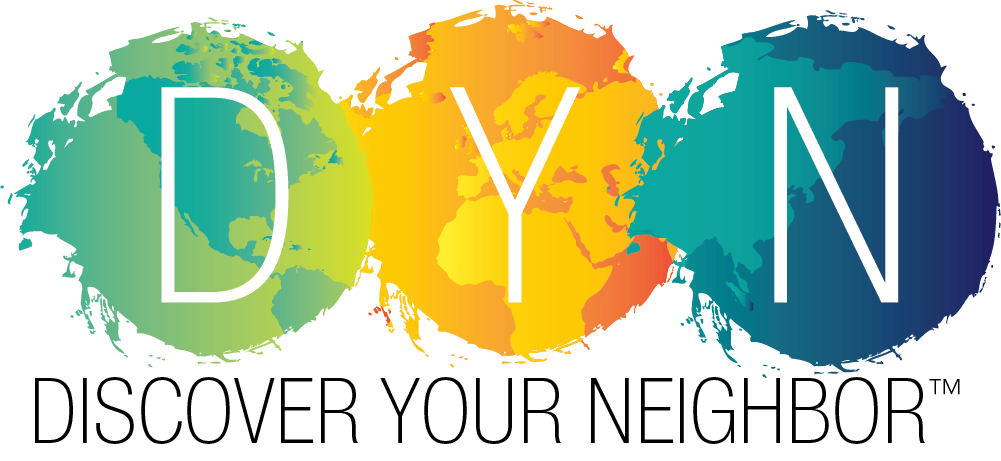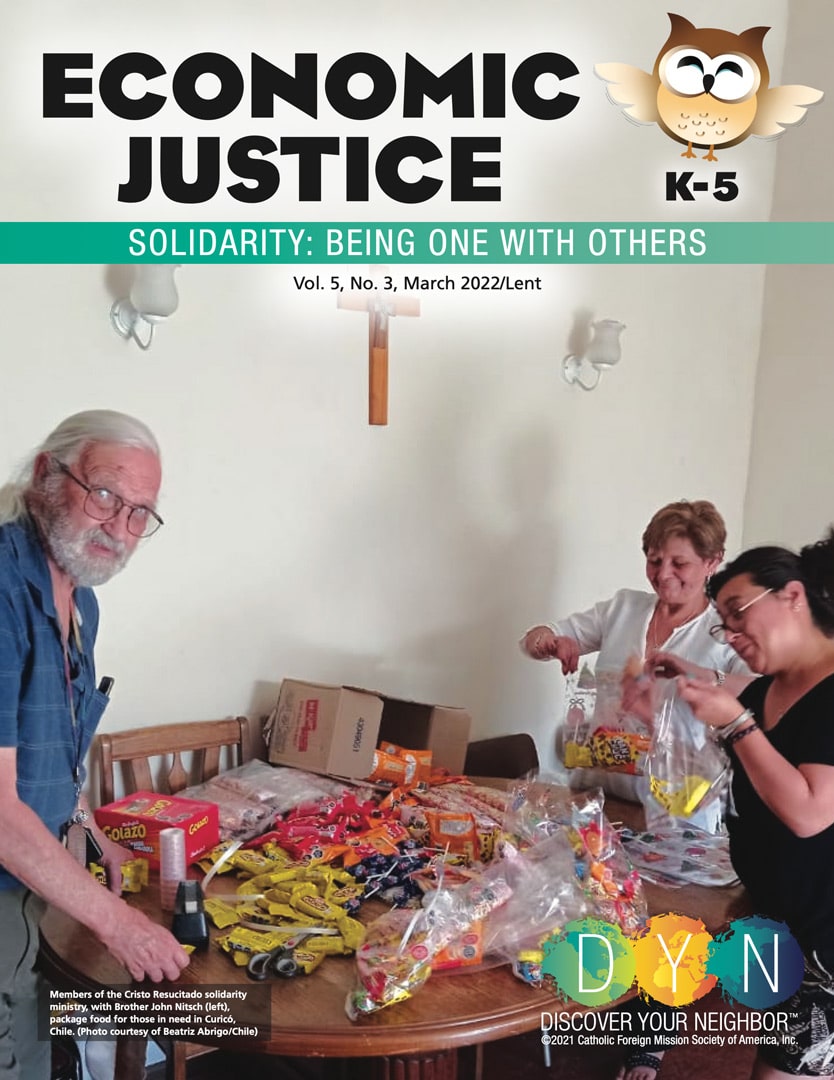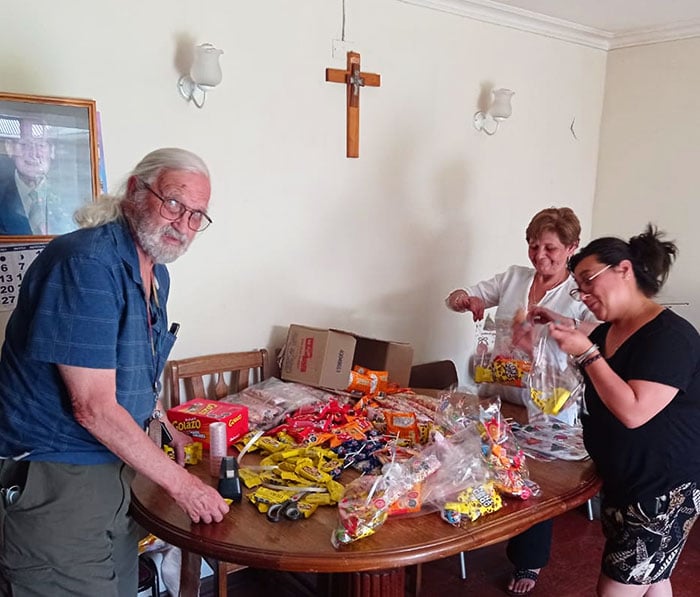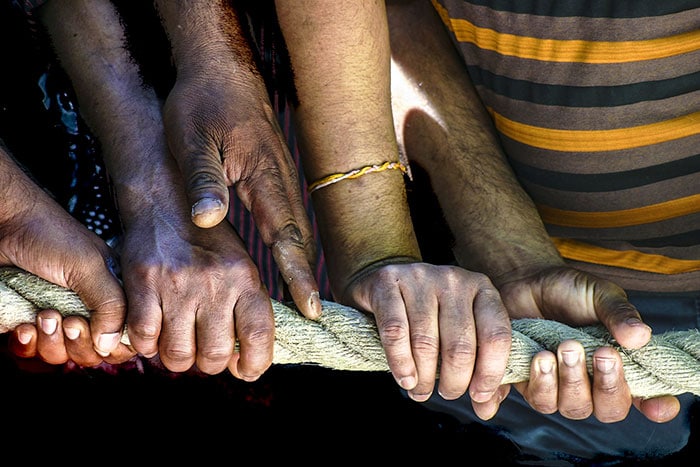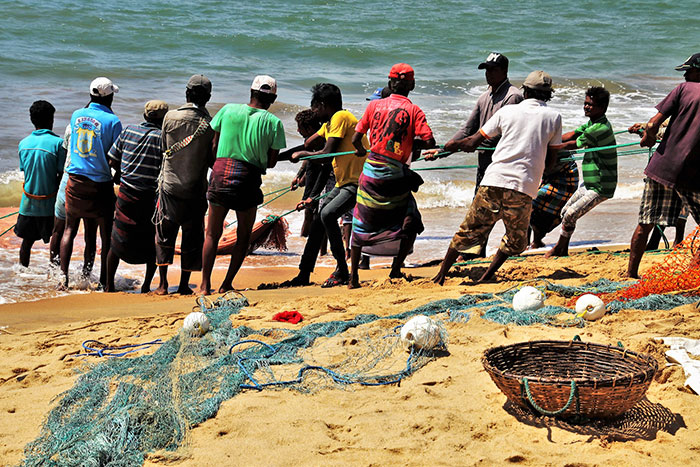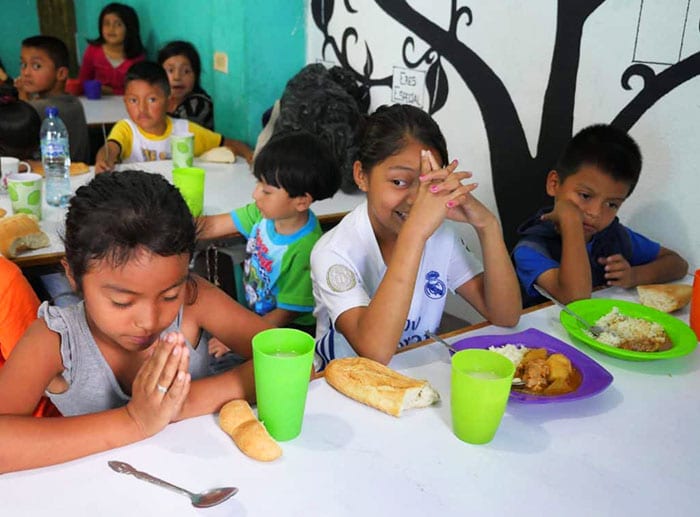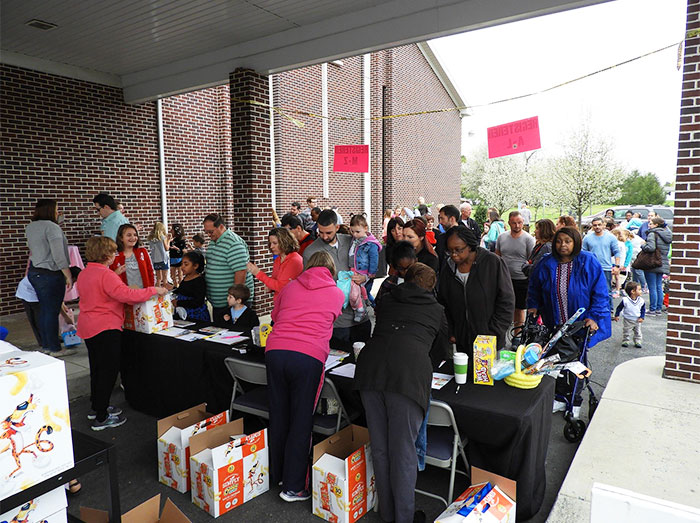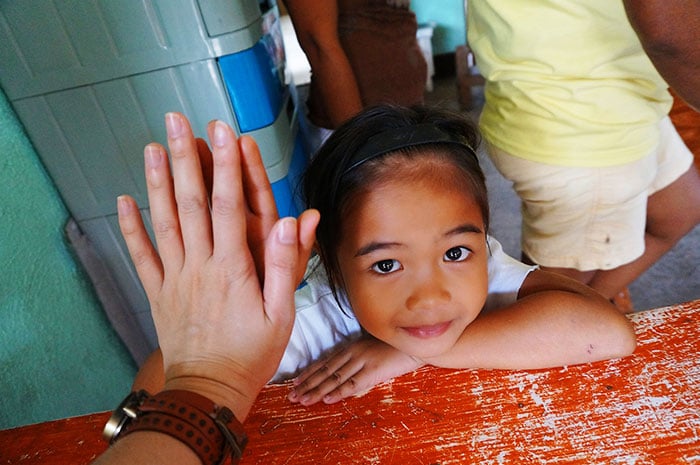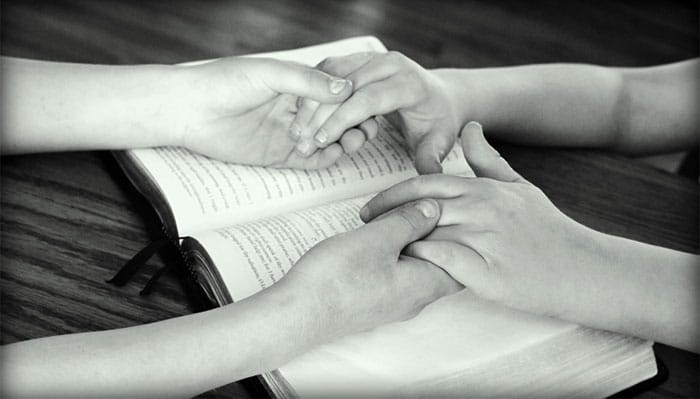Access your Middle School or K-5 Educator’s Guide for your classroom by filling out the form below. You will then be directed to a page where you can download a high quality PDF file to print out or share digitally.
Download the:
In this issue students will LEARN what solidarity means and how the Lenten practices of prayer, fasting, and almsgiving can support it. They will DEVELOP their understanding of solidarity by reading a story of how it is lived out in a parish in Chile. They will be given the opportunity to APPLY their learnings to ORGANIZE a food drive to JOIN in solidarity and provide food to those in need.
God of all People:
Help us walk in solidarity this Lent with all our sisters and brothers.
May our fasting remind us to live in right relationship with others and your creation,
May our prayers shape us in gratitude and humility,
May our almsgiving connect us to others through sharing,
May our hearts be open to all people and nations of the earth.
Amen
MISSION STORY
As Pope Francis reminds us, our lives are all interconnected and we must walk together in friendship and solidarity. We cannot have a good relationship with God if we don’t have a good relationship with everyone. Beatriz Abrigo Hernandez is part of the Solidarity Ministry in her parish in Curicó, Chile where Maryknoll Brother John J. Nitsch has been since 1994. Beatriz, Br. John and their community started the Solidarity Ministry because they saw people in their parish who did not have what they needed to survive. Now they walk with others, building relationships, and working to provide everyone with the basics of life.
Br. John explained, “The ministry began with a soup kitchen about 3 or 4 years ago. Over time they changed their way of doing things by giving people a basket with food items each month. The idea is that the people could cook and eat their food as a family. They give food baskets to 350 families every 30 days.” Beatriz said “The first thing they do is go to homes to see what the family needs.” In the beginning she was surprised to discover that many people still had floors made out of dirt, and the houses were lined with cardboard on the inside. “I did not realize that their houses get muddy when it rains; seeing the conditions people are living in motivates us to make sure they do not go hungry.”
During the peak of the pandemic Chile decreed a state of lockdown that kept people from leaving their homes. Still, the solidarity team continued to give people food boxes. “We went out in hiding because they would have gone without,” Beatriz says. “We were afraid to get caught (outside), but we would pray before every trip. Thank God the police never stopped us.”
Beatriz shared, “One of the challenges the Solidarity Ministry has is making sure it has the supplies and finances for the food boxes. She said, “If we did not have the financial support, we are not sure what we would do. We combine donations to the ministry and parish—including Brother John’s contributions and help from our sister parish in Holland—to be able to buy food for the people in need throughout the year, but there are still many more people who need help.” Beatriz is inspired by all those who support the ministry she said, “Sometimes, the people who have the least are the ones who give us the most. It gives me a sense of pride that they make an effort to help us, even when they have very little themselves.” Beatriz promised, “The Solidarity Ministry will continue no matter the challenges because they do not want anyone to be alone and hungry.”
READ THE FOLLOWING:
Old Testament: Isaiah 58:6-10
Life of Jesus: John 17:20-23
Christian Living: 1 Corinthians 12:12-26
REFLECT on the following questions:
1. What does it mean to you that God created us to be interdependent and in relationship with each other?
2. How can praying, fasting, and almsgiving become acts of solidarity that bind us closer together?
3. Solidarity means working together for the common good. How is God inviting you and your community to come together this Lent for the common good?
For an introduction to Catholic Social Teaching on Solidarity WATCH CST 101 Solidarity.
The Church tells us that we are one human family whatever our national, racial, ethnic, economic, and ideological differences. We are our brothers’ and sisters’ keepers, wherever they may be. Loving our neighbor has global dimensions in a shrinking world. At the core of the virtue of solidarity is working for the common good in the pursuit of justice and peace. (USCCB) Recognizing that we are all connected, Pope Francis explains in Fratelli Tutti that “We need to develop the awareness that nowadays we are either all saved together or no one is saved. Poverty, decadence and suffering in one part of the earth are a silent breeding ground for problems that will end up affecting the entire planet.” (No. 137)
During Lent we practice prayer, fasting, and almsgiving. The practice of prayer helps us to clear away the clutter and distractions of life and spend time growing closer to God. Fasting is an exercise of focusing less on ourselves and more on the needs of others. Almsgiving is a response to a deeper relationship with God and an awareness of the needs of those experiencing poverty and hunger.
In the mission story Beatriz shares what it is like for the hungry people in her community. Fasting can help us relate better to people living in poverty. This Lent DETERMINE what you will sacrifice and fast from by thinking about what you have in common with the people in Chile. CHOOSE not eating between meals or giving up something you love to eat is a way to join in solidarity with those experiencing hunger in Chile and throughout the world. If it is not possible to fast from food, CALCULATE for one week how much money you spend on extras – entertainment, clothing, snacks, games, etc. Then consider donating 10% of that amount to support the people in Chile. WRITE in a journal each day and DESCRIBE your experience of fasting or almsgiving.
ANSWER the following questions:
1. What are some of the emotions you experienced today when you think about the lives of others?
2. Is fasting or almsgiving an easy or difficult experience for you? How does it make you feel?
3. Imagine what it would be like to be a person living in poverty in Chile. Reflect on how that would be different or the same from your life.
4. What have you learned about being in solidarity with others? How has it changed you? How do you look at others’ experiences and challenges differently? What does it inspire you to do?
ORGANIZE a food drive or collection to support a local soup kitchen, food pantry, or the community in Chile. RESEARCH the needs of the organization you want to support. RECRUIT others from your school, church, or local community to help. ADVERTISE the project. SHARE the story at https://discoveryourneighbor.org/how-are-you-using-dyn
Brother John Nitsch’s parish in Chile needs assistance to continue it’s food boxes which provide more than 150 meals a day. You can be part of providing meals with Brother John and the community by visiting https://maryknollsociety.org/project/parroquia-cristo-resucitado-curico and supporting their project.
